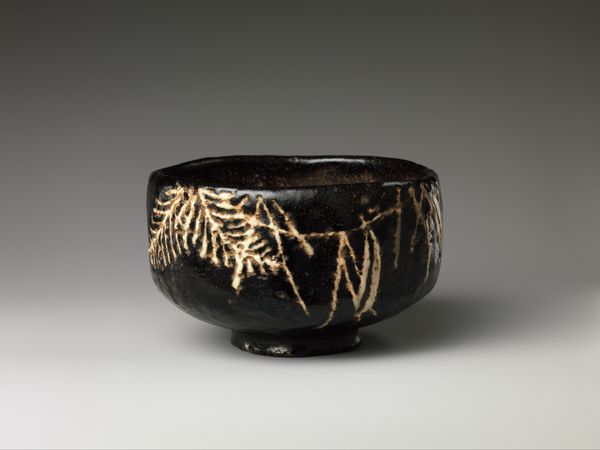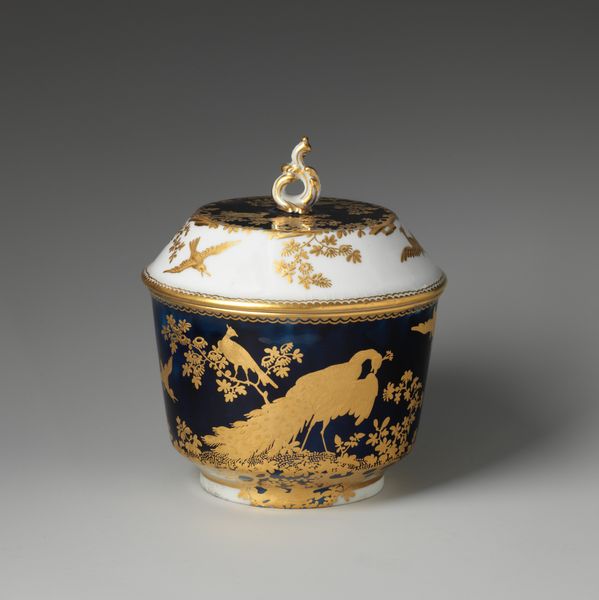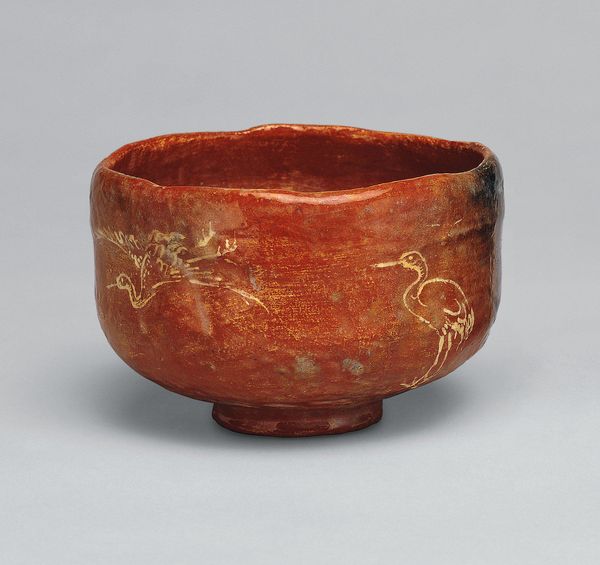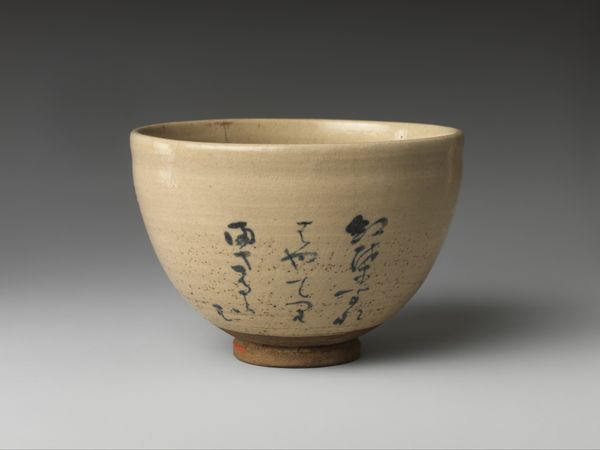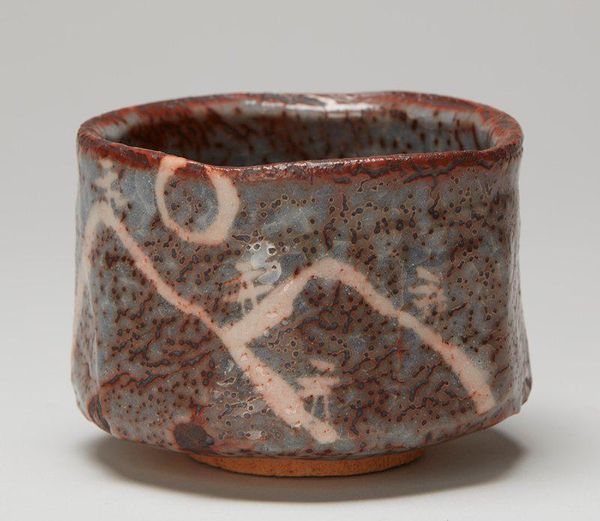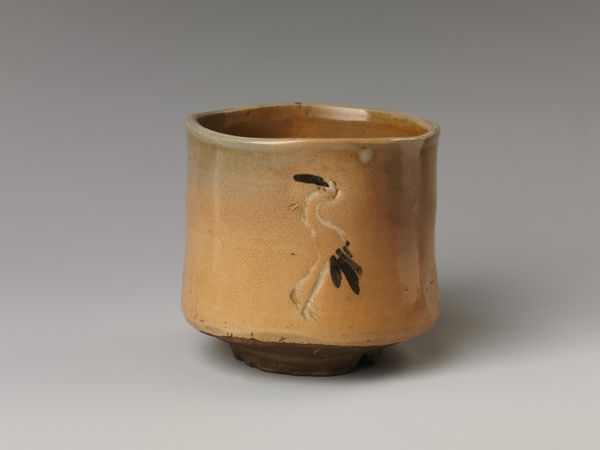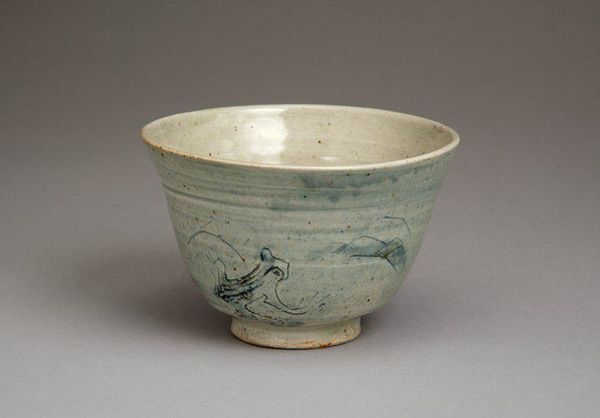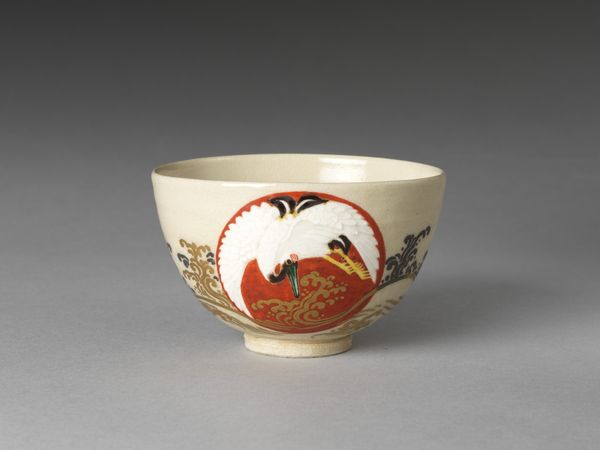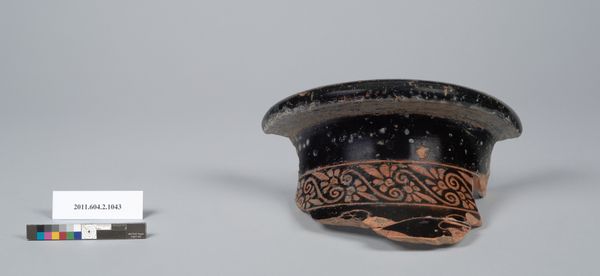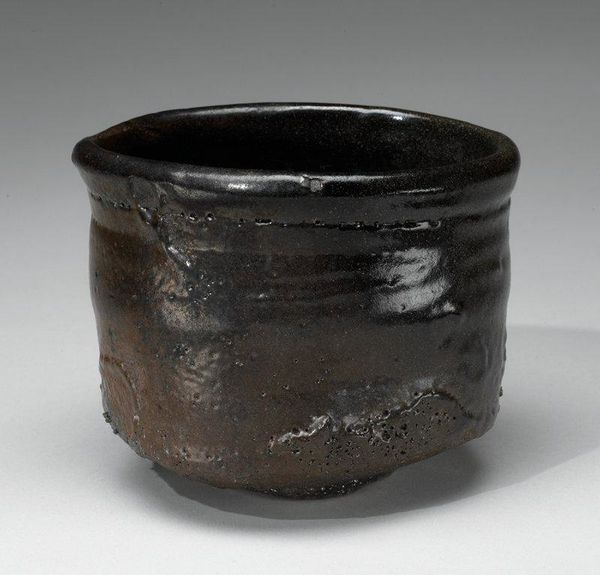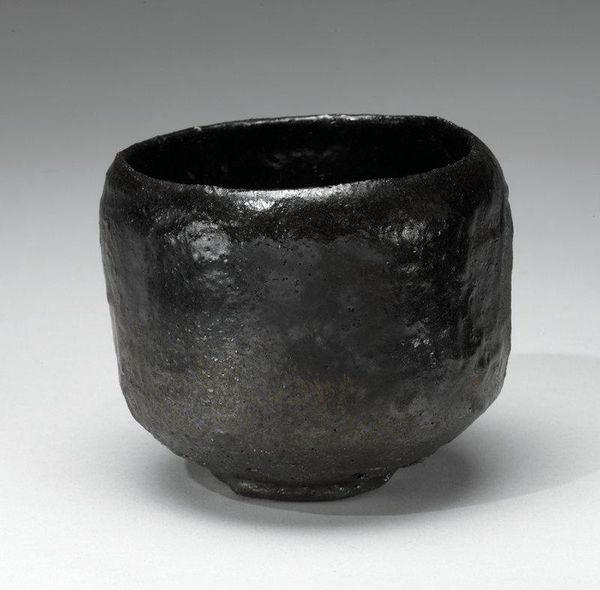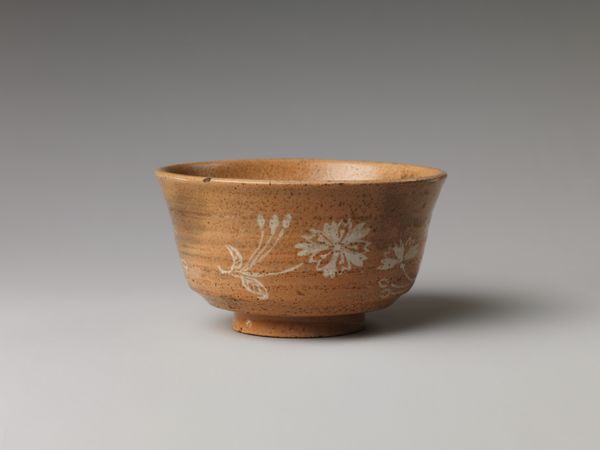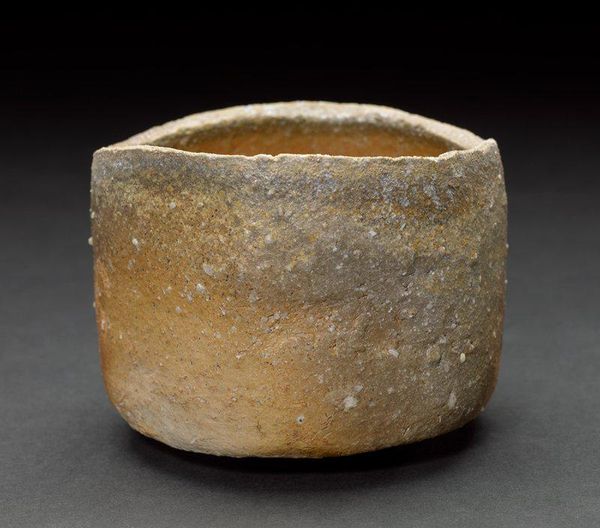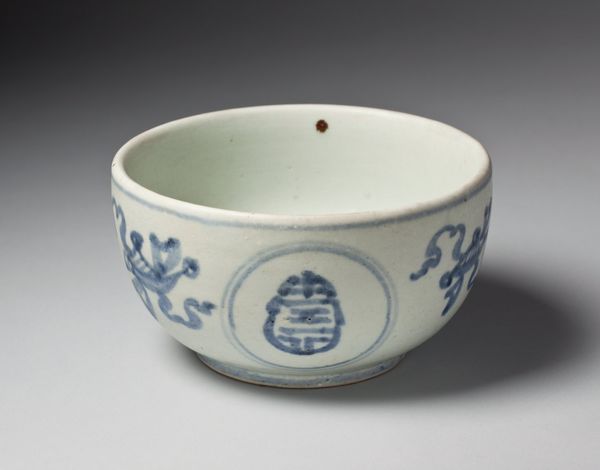
Tea bowl with incised turtles late 18th - early 19th century
0:00
0:00
ceramic
#
asian-art
#
ceramic
#
japan
#
ceramic
Dimensions: 3 7/16 × 4 9/16 × 4 9/16 in. (8.73 × 11.59 × 11.59 cm)
Copyright: Public Domain
This is a tea bowl with incised turtles, made by Raku Ryōnyū in Japan, sometime between the 18th and 19th centuries. The dark, lustrous glaze provides a stark contrast to the incised golden turtles, symbols of longevity and good fortune in East Asian cultures. Consider how the turtle, revered as a sacred creature, appears throughout history. From ancient Chinese oracles using turtle shells for divination, to its later association with Mount Penglai, the mythical island of immortality. The image of the turtle recurs as a potent symbol of protection and endurance, a visual echo of humanity’s enduring quest for meaning and continuity across generations. The motif has metamorphosed, yet its core essence—a yearning for stability and permanence—remains unchanged. This resonates on a deep, subconscious level, tapping into our collective memories of life's cyclical rhythms.
